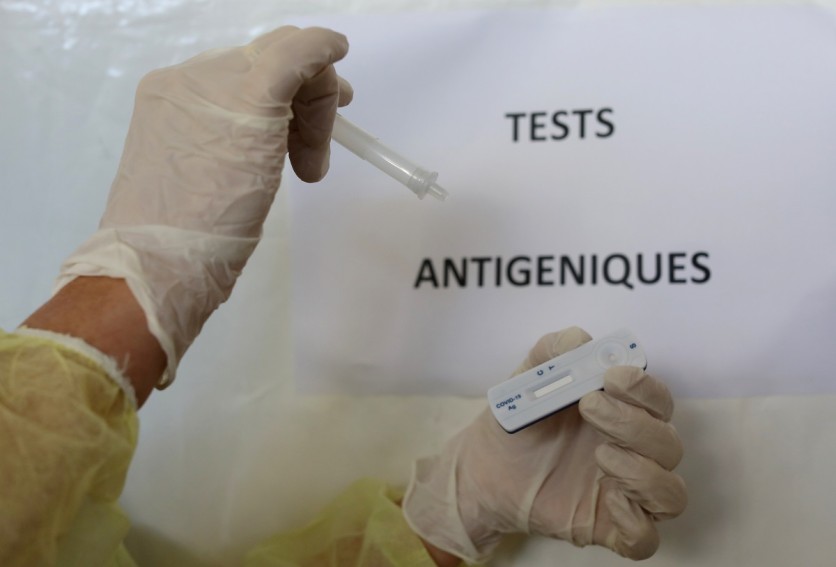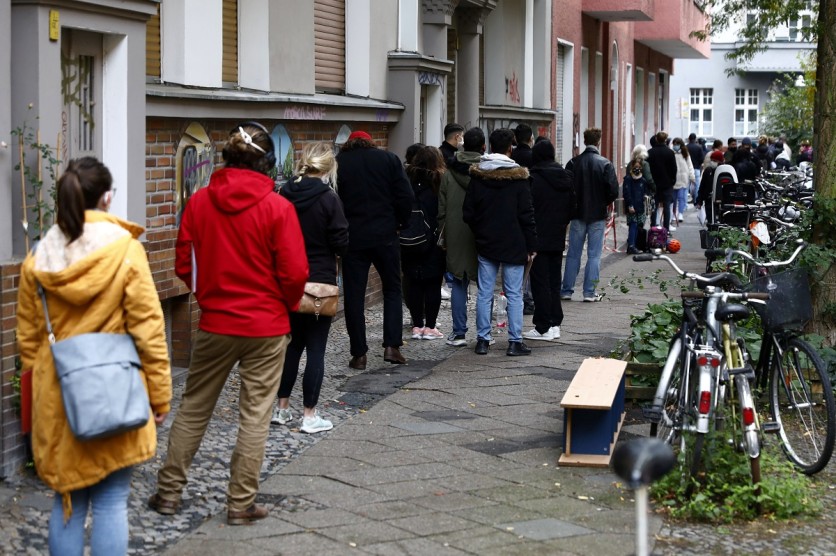University of Oxford scientists have created a testing kit that could help confirm COVID-19 within five minutes, which can greatly help in governments' mass testing programs at airports and businesses.
The university announced about the new diagnostic test on its website on Thursday, October 15. The research was published on MedRxiv's preprint server on October 14 and has not yet been peer-reviewed.

Oxford scientist used Oxford Nanoimaging's portable commercial microscopes. The study was funded by Royal Society Dorothy Hodgkin Research Fellowship and Research Grant for Research Fellows, the University of Oxford COVID-19 Research Response Fund, a BBSRC-funded studentship, and Wellcome Trust grant.
Extremely rapid 5-minute COVID-19 test
The researchers wrote in their pre-print study that the device can accurately discriminate COVID-19's SARS-CoV-2 from other viruses and respiratory pathogens like seasonal human coronaviruses and influenza.
"Our method quickly detects intact virus particles," Oxford's Department of Physics Professor Achilles Kapanidis said, according to a CNBC report. The professor added that testing would be "simple, extremely rapid, and cost-effective."

Researchers revealed the invention on Thursday, October 15, and the university hopes to rollout an approved testing device within six months after start their product development by early 2021. Since the Oxford rapid test will be ready in 2021, it could be used to manage the pandemic for next winter as health experts warned that coronavirus would still linger even when vaccines become available.
Although rapid antigen tests are less accurate than molecular PCR tests, governments still use it for mass-testing, which was a key to re-opening economies because they are cheaper and gives results faster than swab tests.
Meanwhile, Siemens Healthineers launched in Europe a rapid antigen test kit for COVID-19 on Wednesday, October 14. However, the industry may struggle to meet the surge in demand.
Dr. Nicole Robb of Warwick Medical School said that the upcoming winter months posed significant concern for the possible effects of SARS-CoV-2 spread along with various seasonal respiratory viruses.
Dr. Robb said their tests can efficiently distinguish coronavirus in clinical samples, which is "offers a crucial advantage in the next phase of the pandemic," according to Reuters.
Experts suggest pool testing to speed-up mass testing
With the huge demand in COVID-19 testing following the opening up of economy, experts suggest utilizing pooled testing, in which multiple swabs are analyzed in a single test tube. This could speed up the testing program of the government.
In an editorial in the Journal of the Royal Society of Medicine, researchers from the London School of Hygiene and Tropical Medicine as well as the University College London have proposed for change in the testing method. In this method, if doctors did not detect coronavirus in the combined sample, all these patients are presumed negative. However, if the test picked up COVID-19 particles, then all swabs will be tested individually.
This technique could save resources and time by combining 50 to 100 swabs within a single test. It could help boost the testing capacity, particularly when the supply is gradually declining with the surge in demand.
Prime Minister Boris Johnson aims to do swab testing on 10 million people per day, but the UK is still struggling to produce 250,000 tests.
Meanwhile, this method is already being used in Germany where experts pool up to 30 samples, but borderline positive result may not traced by this method. This happens when people are swabbed either in very early or late stages of infection.
Related article : Scientists Discover Coronavirus in Eye Tissues of 33 Eye Donors, But Only 10 Tested Positive Post-Mortem
This is owned by Tech Times
Written by CJ Robles
ⓒ 2026 TECHTIMES.com All rights reserved. Do not reproduce without permission.




